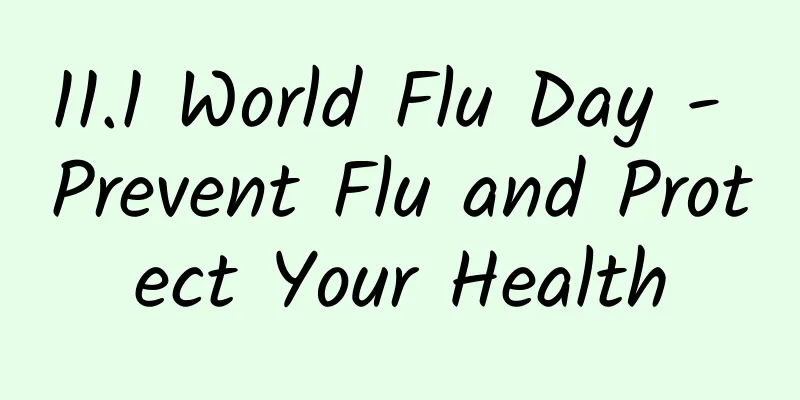11.1 World Flu Day - Prevent Flu and Protect Your Health

|
11.1 World Flu Day - Prevent Flu and Protect Your Health Duchang County Center for Disease Control and Prevention 2023-11-02 15:40 Published in Jiangxi 11.1 World Flu Day Preventing Flu Protect your health What is influenza? Influenza (abbreviated as "flu") is an acute respiratory infectious disease caused by influenza viruses. Influenza viruses can be divided into four types: A, B, C, and D. The main types of influenza viruses that cause seasonal epidemics are influenza A and B viruses. Influenza viruses are mainly transmitted through respiratory droplets produced by sneezing and coughing of infected people, and can also be infected through direct or indirect contact with mucous membranes such as the mouth, nose, and eyes. In certain places, such as crowded, closed, or poorly ventilated rooms, it may also be transmitted in the form of aerosols. People are generally susceptible to influenza viruses, and influenza patients and asymptomatic carriers are the main sources of influenza infection. What are the dangers of influenza? Influenza viruses are antigenically variable and spread rapidly, causing seasonal epidemics every year. Influenza outbreaks are prone to occur in places where people gather, such as schools, childcare institutions, and nursing homes. Influenza has an acute onset and is mostly self-limiting, with symptoms such as fever, headache, muscle aches, nasal congestion, runny nose, cough, sore throat, and general discomfort. However, in high-risk groups such as pregnant women, infants, the elderly, and patients with chronic diseases, complications such as pneumonia or aggravation of underlying diseases may develop into severe cases, and severe cases may lead to death. The annual seasonal epidemic of influenza can cause 3 million to 5 million severe cases and 290,000 to 650,000 respiratory disease-related deaths worldwide, posing a serious threat to human health. How to prevent influenza? 1. Get a flu shot Influenza vaccination is the most economical and effective measure to prevent influenza, and can significantly reduce the risk of contracting influenza and developing serious complications. 2. Maintain good hygiene habits Wash your hands frequently, observe etiquette, cover your mouth and nose with a tissue or towel when coughing or sneezing, and try to avoid touching your eyes, nose or mouth. 3. Develop healthy living habits Maintain a regular schedule, balanced nutrition, adequate rest, moderate exercise, and maintain your immunity. 4. More ventilation, less gathering Open windows frequently to ventilate and improve air circulation. During the influenza epidemic season, high-risk groups should try to avoid going to closed places where people gather, and it is recommended to wear masks when going there. 5. Take good personal protection to reduce the spread of diseases If you have flu-like symptoms, you should rest at home, observe your health, avoid going to work or class when you are sick, and wear a mask when you go out or come into contact with others to reduce the spread of the disease. If your condition worsens, you need to go to the hospital for treatment in time. |
>>: The Five Precepts of Exercise and Health Preservation
Recommend
How to read the four-dimensional color Doppler ultrasound report
Many pre-pregnancy physical examinations require ...
An inconspicuous habit when cooking will increase blood sugar and make you gain weight. Change it now!
Do you like to add a handful of sugar when cookin...
hcg reference value in early pregnancy
There are many ways to test for early pregnancy i...
What is the cervix?
I often hear people around me say that someone ha...
What is the reason for postpartum bleeding?
Many women are very weak after giving birth and m...
Is breast nodule 4a serious?
Breast nodules are a common physical disease amon...
Nose bleeding in 4 months of pregnancy
We all know that during pregnancy, women's en...
First month of pregnancy false menstruation
We all know that absent menstruation is an import...
Heart failure is not silent: exploring the hidden world of chronic heart failure
Author: Sun Xinglan, deputy chief nurse of the Se...
What's the matter with the sudden milk withdrawal and milk replenishment?
For new mothers, there will be many problems in t...
Can I take a bath every day during the confinement period?
In traditional Chinese thinking, women can only t...
What is the reason for dark brown vaginal discharge? Let you know the real situation
The female vagina secretes a milky white or trans...
Can a woman still get pregnant if she has ovulation bleeding?
In order to get pregnant as quickly as possible, ...









